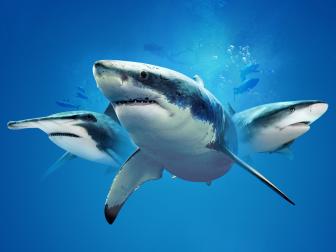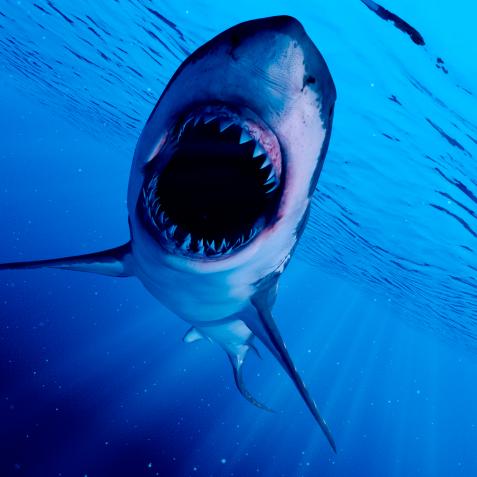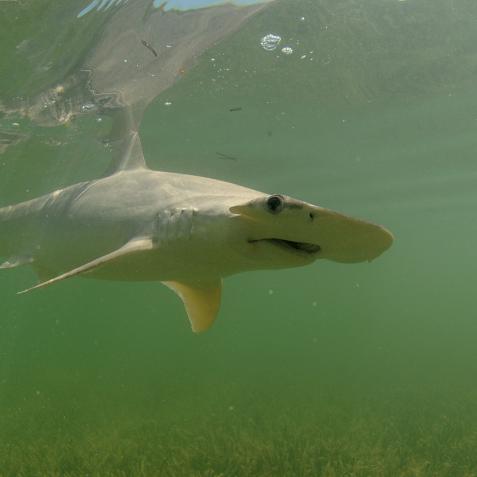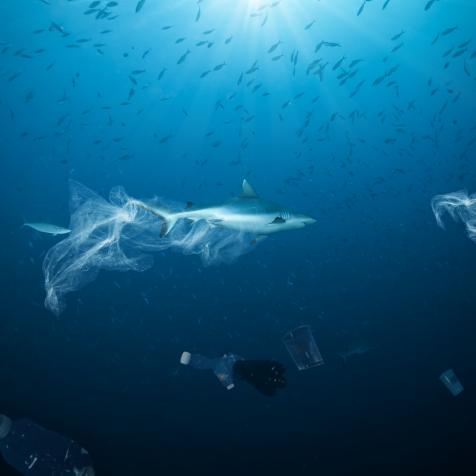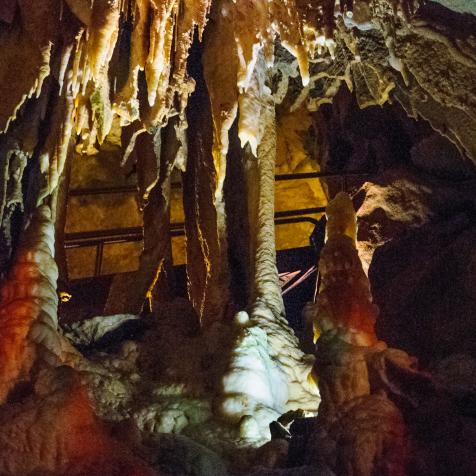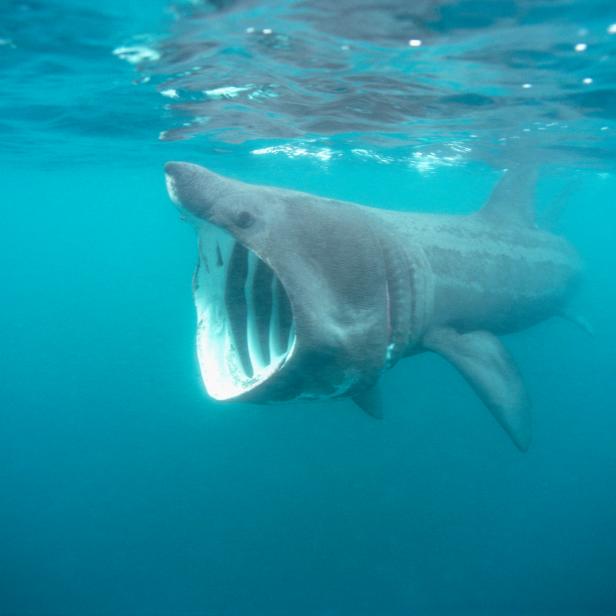
Corbis/VCG
Unraveling the Mysteries of Basking Sharks

With a scientific name that translates to "large-nosed sea monster," the Basking Shark is an elusive member of the shark family.
For being the second largest shark in the world and having a nickname like, basking, it may seem like 50ft-planktivores are easy to study. Even so, scientists have only put a few pieces of the basking shark story together. These peculiar sharks, whose scientific name, Cetorhinus maximus, translates to “large-nosed sea monster”, don’t just float thorough life. They actively navigate surface waters for food in the form of tiny animal plankton (aka zooplankton). With basking shark areas going as long as 20 years between sightings, knowing where to find them can be hard to predict. Still, a single sighting can be immensely valuable, since basking sharks are known to aggregate in large numbers. The most reported in one sighting was a school of over 1,000 basking sharks, and the mingling doesn’t stop there.
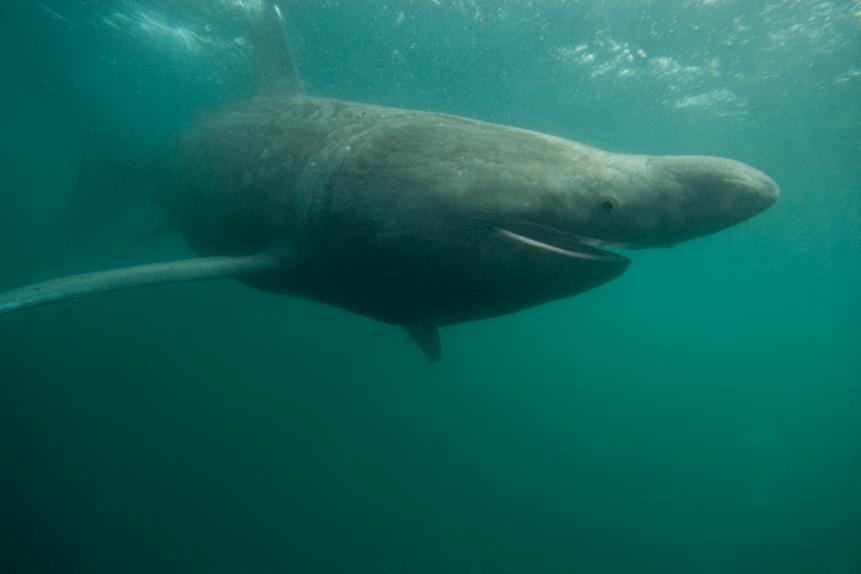
Gerard Soury
Found in both the Atlantic and Pacific oceans, genetic research shows individuals from either ocean are still part of one big population. To put that into perspective, consider their cousins, the great white sharks (Carcharodon carcharias), who are highly migratory, but genetic research still separates the Pacific and Atlantic great whites into two sub-populations. That is to say, basking sharks are serious jetstream-setters in the shark world. Over in the Atlantic Ocean, satellite tagging data shows transatlantic travel goes both east to west, where the ocean can span 2,060, miles, as well as north to south, which is at least 9,000, miles going just from Iceland to Chile. A testament to basking shark unpredictability is that some of the most stunning footage of their behavior — like the video taken by Chloe Ryan from Kilkee, Ireland during a casual stroll just steps away from her door — comes from citizen scientists.

Dr. Dave Ebert
Part of the challenge with understanding basking sharks is certainly due to overfishing. Since the early 1900s, these ocean-surface grazers have been fished all over the world for their livers, meat, and fins. Consequently, in 2019 the IUCN Red List of Threatened Species declared basking sharks to be Endangered. All the same, low numbers may not be the only reason for the mysterious waters still surrounding them. To dive past science’s surface understanding of basking sharks, fisheries scientist Dr. Brittany Finucci from the National Institute of Water and Atmospheric Research (NIWA) dove deeper than the 4,000 feet in the mesopelagic layer, where they also can go for food.
More on Sharks
SHARK WEEK starts July 11 on Discovery and discovery+
Shark Week Is Our Favorite Thing About Summer
Get ready for the best summer yet. This year, SHARK WEEK starts on July 11 with more jawsome shows than ever before on Discovery and discovery+.
Shark Week | The Best Thing About Summer 00:29
Get ready for the best summer yet. Starting July 11 and continuing through July 18th you can see more hours of shark programming than ever before on Discovery and discovery+.
Dr. Finucci, the lead author of a recent publication, was one of eight investigators from four New Zealand institutions that examined 131 years’ worth of data on 401 basking sharks over a 4.2 million km2 aerial-surveyed area within the South Pacific Ocean. The publication focused on what drives these gentle giants to the seas of their choosing so as to better predict the waters that basking sharks will or could use in the future. The biggest takeaway from the New Zealand investigators is that basking sharks are the foodies of the ocean. Where the zooplankton go, the basking sharks will follow, especially when it comes to copepods. Without being able to look up the online reviews for the best and latest basking shark dinner hotspots, the researchers found this out by doing some good ol’ fashion math in the form of correlative statistic models for habitat suitability. Super simple stuff- just kidding, this statistical analysis is complementary to the behemoth size of basking sharks. Thanks to this massive effort, the uncertainty of basking sharks in the South Pacific was analyzed for the first time.

Dr. Dave Ebert
When it came to the observations the investigators reviewed, sightings trended in the summer months as well as locations closest to the presence of humans. The biggest message from this data doesn’t reflect basking shark behavior, but rather that of citizen scientists. The work of people around the world reporting what they see on the water is incredibly valuable to scientific knowledge. Citizen scientists can be anyone, like the readers of this very article. If you or someone you know observe basking sharks out in the wild, report these sightings to groups like the Spot a Basking Shark Project in the eastern North Pacific, Shark Trust’s Basking Shark Project in the United Kingdom or the Irish Basking Shark Group.









